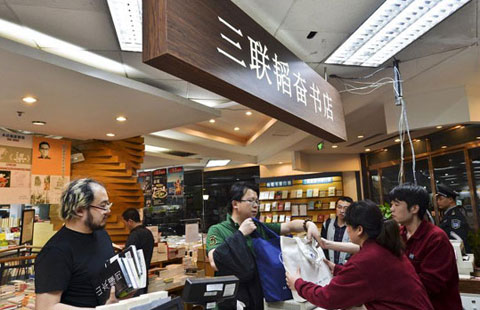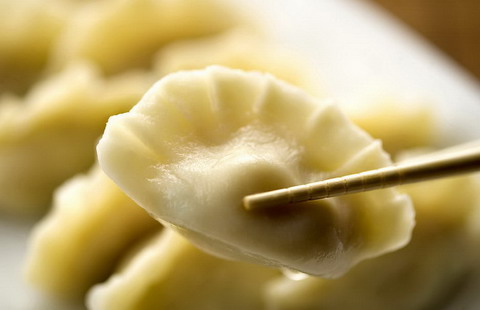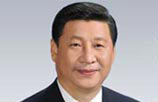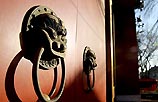The turning of the year
Updated: 2014-12-22 07:44
By Luo Wangshu and Zhao Xinying(China Daily)
|
||||||||
|
In the south of China, people like to eat tangyuan on the day of the winter solstice, or dongzhi. The dish is made from glutinous rice flour mixed with a small amount of water to form balls. Yang E'na / for China Daily |
The winter solstice, which marks the shortest day and the longest night, is a time of celebration as the seasons change and winter begins to ebb, report Luo Wangshu and Zhao Xinying.
China Daily is publishing a series of reports focusing on efforts that help the country to move forward.
When Li Xiangbo thinks back to his childhood, he remembers the winter solstice, or dongzhi, as being more important than his birthday.
"It was a big holiday in my family because it was the start of the annual Chinese New Year holiday under the lunar calendar. My mom prepared for days in advance every year," the 25-year-old said, remembering a combination of delicious food and the observance of rituals to worship the family's ancestors.
"My mom once forgot my birthday, which fell on the same day that year, because she was so busy preparing for the solstice. The funniest part was that no one in my family remembered until two days later. I even forgot about it myself," he said.
In the lunar calendar, the solstice falls on Dec 21, 22 or 23 - depending on which has the shortest day and longest night - and is nominally the coldest day of the year.
Although the festival is no longer as important as before, families across China still celebrate in a traditional manner, and with a variety of regional delicacies, including sweet rice balls and dumplings, depending on local traditions.
When Li, from Shantou, Guangdong province, was a child, he always had a bowl of homemade sweet rice-ball soup as soon as he awoke on solstice morning.
"Usually, sweet rice balls are made with white, glutinous rice. But on winter solstice, my mom would put a few red rice balls in the soup along with the white ones, to make it look pretty and wish everyone good luck," Li said, adding that some families would even stick rice balls on their front doors because "it might banish devils and bring good luck".
Li's family still worships their ancestors during dongzhi by burning incense and honoring their memory. "It was a fun time for me as a child. Mom would cook a lot of delicious food, including some complicated dishes we didn't get to eat on 'ordinary' days," he said.
"All the people with the surname Li gathered together for a banquet at the Li ancestral temple, and some of the better-off members of the family would cover the cost," he added.

 Yearender: 10 cultural 'firsts' in 2014
Yearender: 10 cultural 'firsts' in 2014
 9 things you may not know about Winter Solstice
9 things you may not know about Winter Solstice
 10 most innovative cities in Chinese mainland
10 most innovative cities in Chinese mainland
 The world in photos: Dec 15-21
The world in photos: Dec 15-21
 Santa Claus gives out gifts
Santa Claus gives out gifts
 BRICS countries upbeat on long-term growth
BRICS countries upbeat on long-term growth
 Trending: Cooking hot pot in snow
Trending: Cooking hot pot in snow
 Woman does Yoga in minus 30 degrees deep freeze
Woman does Yoga in minus 30 degrees deep freeze
Most Viewed
Editor's Picks

|

|

|

|

|

|
Today's Top News
Nation to become net capital exporter
Beijing willing to assist Moscow
US-led strikes against IS in Syria 'ineffective'
Pyongyang denies cyberattack on Sony
Colombia weighs oil sector options
China approves modified corn import
Obama expresses condolences for NY police officers
A fruitful year for China-Brazil relationship
US Weekly

|

|








